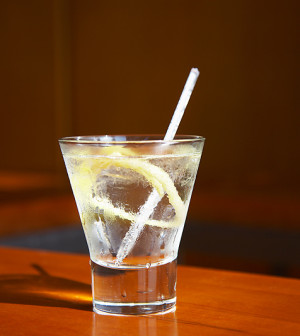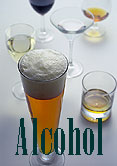- Could Your Grocery Store Meat Be Causing Recurring UTIs?
- Are You Making This Expensive Thermostat Error This Winter?
- Recognizing the Signs of Hypothyroidism
- 10 Strategies to Overcome Insomnia
- Could Artificial Sweeteners Be Aging the Brain Faster?
- Techniques for Soothing Your Nervous System
- Does the Water in Your House Smell Funny? Here’s Why
- Can a Daily Dose of Apple Cider Vinegar Actually Aid Weight Loss?
- 6 Health Beverages That Can Actually Spike Your Blood Sugar
- Treatment Options for Social Anxiety Disorder
Holidays Can Trip Up Problem Drinkers


The approaching holiday season can pose challenges for the 18 million Americans with an alcohol use disorder, an addiction specialist warns.
Binge drinking can cause a variety of problems, both social and health-related, including life-threatening interactions with some prescription medications, Dr. Eric Collins, an addiction psychiatrist and physician-in-chief at Silver Hill Hospital in New Canaan, Conn., said in a hospital news release.
“It’s important to be especially mindful of your alcohol consumption at holiday parties and gatherings, and also to keep an eye out for friends or family members who may be showing warning signs of drinking too much,” he advised.
Binge drinking for men is consuming five or more drinks within two hours. For women, it’s consuming four or more drinks in that time, he said.
“For those who are already struggling with alcohol use disorders, having a plan for holiday parties — coming up with a favorite non-alcoholic beverage or having a prepared rationale for why you’re not drinking — is one effective way to manage challenging social situations,” Collins said.
It’s important to be with other people over the holidays, because isolation can lead to depression, which might tempt you to drink. However, you also need to be selective about which holiday get-togethers you attend, he noted.
Be careful about what you eat. Alcohol can be a hidden ingredient in foods, especially during the holidays, Collins said.
And keep busy with fun activities, he said. Doing so will reduce the risk that you’ll focus on alcohol. Support is also crucial, so he suggested attending extra therapy sessions or group meetings during the holiday season.
Try to maintain your normal routines during the holidays, and get adequate sleep and exercise, Collins advised.
More information
The U.S. National Institute on Alcohol Abuse and Alcoholism has more about alcohol use disorders.
Source: HealthDay
Copyright © 2026 HealthDay. All rights reserved.










